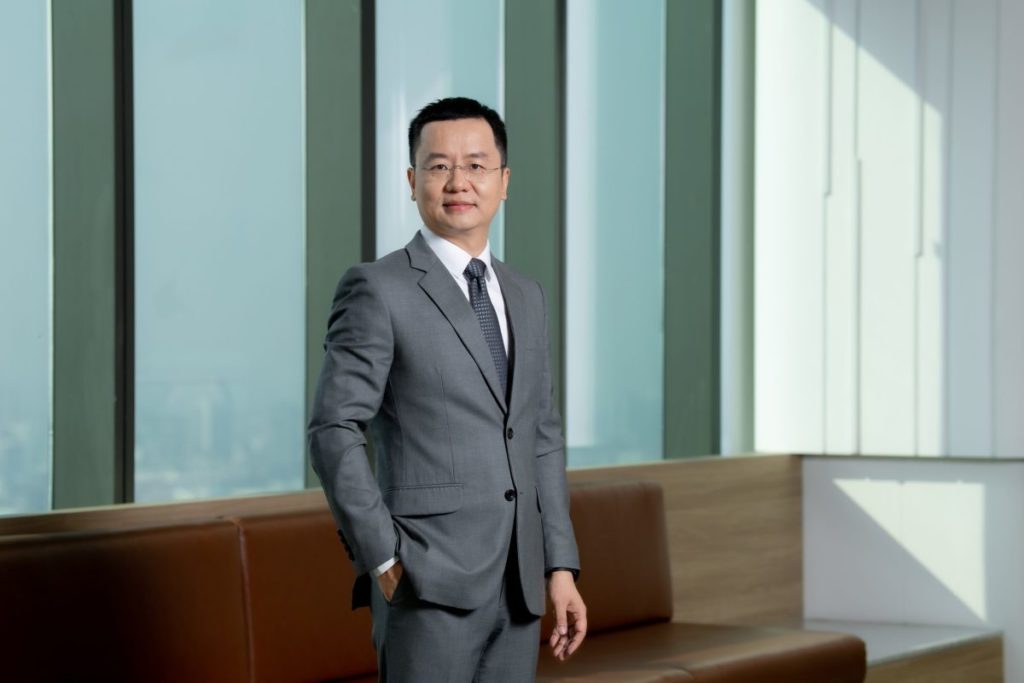Today, economies and societies around the world are accelerating their transformations toward network digitalization and intelligence. Cyberspace is now intermingled with everyday life and digitalization is deepening, with technologies such as cloud computing, big data, artificial intelligence, and 5G picking up increased momentum within economic development. The digital economy has emerged as an important engine for economic growth in the post-pandemic era. At the same time however, cyber security challenges are becoming increasingly more severe, network boundaries are becoming blurred, the number of vulnerabilities and targeted areas are rapidly increasing, and security incidents targeting critical infrastructures are becoming more frequent. In this transition period of increasing uncertainty, the basic role of cyber security is becoming more and more prominent, and important challenges must be addressed. How to build digital trust, how to enhance the security resilience of critical infrastructure, how to protect enterprises’ digital transformations, and how to manage risks, ensure compliance, and ensure network and data security are all challenges and opportunities currently facing cyber security in protecting the development of the digital economy.
According to the National Cyber Security Agency (NCSA), the number of cybersecurity threats in Thailand increased dramatically from 135 incidents in 2021 to over 772 incidents in 2022, with most being data breaches occurring through educational and public sector websites. Huawei Technologies (Thailand) Co., Ltd., a globally recognized ICT infrastructure provider, has been proactively supporting Thailand to strengthen its cybersecurity systems and recently announced its commitment to work with key government agencies, leading private companies, and stakeholders in the industry to drive Thailand towards the digital era in both a safe and secure way.
Huawei is committed to building secure and trusted products, solutions, and services to help customers cope with cyber security challenges. In addition, Huawei is also willing to strengthen communication and cooperation with key stakeholders to jointly improve cyber security protection capabilities and meet cyber security challenges and opportunities through developing new standards and joint innovations, as well as through sharing knowledge and best practices.
David Li, Chief Executive Officer, Huawei Technologies (Thailand) Co., Ltd., recently spoke on cybersecurity issues: “More adoption of technologies undeniably brings more cybersecurity threats and higher risks of unauthorized data access. These threats could result in huge impacts on society and the economy if organizations don’t have sufficient measures in place to protect their data. Huawei Thailand is aware of these cybersecurity issues and is committed to work with all related parties to strengthen Thailand’s cybersecurity. For a number of years, we have been working with the Thai Government and the private sector on many projects to help lay a solid foundation for safer cyber security and data protection measures. These will also strengthen the capabilities of businesses and organizations to tackle potential threats in future. Some of these projects include the NCSA’s Thailand National Cyber Week, the conference to prepare for the enforcement of the Personal Data Protection Act (PDPA), and the annual Cybersecurity Initiative Seminar.”
For 2023, Huawei Thailand will continue to provide Thai society with safe and innovative technology solutions while empowering and developing the country’s cybersecurity space to the next level through upgrading cybersecurity and data protection technologies within Thailand’s ICT infrastructure. Similarly, Huawei is actively sharing its cybersecurity knowledgebase for 5G technologies and guidelines with Thai government agencies, authorities, and partners to build trust in the country’s cyber ecosystem. With regards to data protection, Huawei is also continuing to support Thai businesses and startups to adopt trustworthy cloud computing solutions that comply with the country’s PDPA laws. Through this, Thailand should be able to improve its ranking in the Global Cybersecurity Index (GCI), reinforcing the country’s higher level of cybersecurity trust at an international level.
In addition to its knowledge-sharing strategies, Huawei Thailand is committed to help cultivate more digital talents with cybersecurity expertise. The company aims to grow a digital talent pool of 20,000 experts within three years through intensive educational initiatives, which includes the Spark Ignite program to reinforce SMEs; the Huawei Digital Bus program, which is in the process of expanding to 10 provinces to upskill over 2,000 students on digital technologies; the Thailand Talent Talks, which help facilitate the sharing of digital knowledge with other key industries; and the Seeds for the Future program, which provides trainings, scholarships, and youth contests to foster talent and educate diverse groups of people about cyber security. All these projects aim to empower Thai industries to go through their own digital transformations safely and smoothly.
For years, ICT and global connectivity have been a catalyst for human progress and development. Today, technologies such as 5G help to enable digital life, transform societies and economies, and expand opportunities for collaboration and economic growth. While this is certainly good news, the increased connectivity of technology, networks, and devices is expected to further deepen our dependence on technology. This dependency poses significant risks that must be mitigated to ensure that our technology is fully resilient when most needed.
By strengthening cooperation between the public and private sectors, as well as at a global level, we can move towards more meaningful agreements on cyber norms while also developing consensus-based, objective, and enforceable standards to address cybersecurity risks. This in turn will lead to safer and more secure digital ecosystems that are truly capable of keeping up with innovation.
David Li, CEO of Huawei Thailand said: “Huawei will continue to communicate and collaborate with the Government and private sector to increase Thailand’s cybersecurity proficiency, protect all data in the country’s ICT infrastructure, and create safer and more accessible digital ecosystems. With these commitments, Huawei Thailand affirms that organizations, enterprises, and individuals can be more secure when using technologies in their daily lives in line with Huawei’s mission to ‘Grow in Thailand, Contribute to Thailand’, which aims to empower the country with safe and fully intelligent connectivity in the digital world.”
Source: Carl Byoir & Associates
